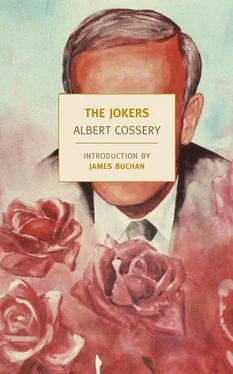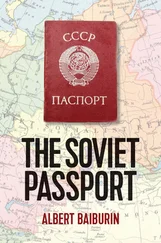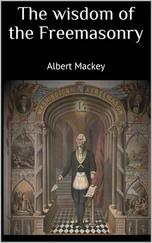“Of course I love you,” he responded with a bitter, pained smile — smiling not at the lie but at the sadness he already felt knowing he’d lose her someday.
“What a man I have!” she cried out, thrilled. “The fact that a man like you even exists is a miracle!”
In her delight she jumped off the rope onto the sand, but Heykal grabbed her and made her sit next to him again. Then, caressing the back of her neck, he said:
“Listen, I have a job for you. The next time you come to see me, bring a typewriter. I’ll dictate a letter to you.”
“What are you plotting now? A new hoax?”
“Well, yes. I’m going to send a letter to all the papers asking them to set up a subscription to pay for a statue of the governor.”
Soad clapped her hands at the announcement of this plan; again she tried to stand up, wanting to demonstrate her enthusiasm, but Heykal held her down firmly and ordered her to remain calm.
“Listen,” he went on, “that’s not all. You’ve got a part to play in this. Do you know who’s going to sign this letter? Your father, the most eminent of the governor’s friends.”
“What a devil! How I love you!” She threw her arms around his neck and covered his face in tiny kisses.
“And I’ll need to see your father’s signature in order to imitate it. Can you get me one?”
“That’s easy. I’ll have him write me a check. It won’t be the first time — that’s how he gives me money.”
“Excellent!” exclaimed Heykal. “I’m so proud! Ask him for a check made out to cash so I can include it with one of the letters. I’ll send that one to the most influential paper — it’ll make the letter all the more believable. After that, the rest of the papers will publish the letter without question.”
Soad suddenly doubled over, screeching with vicious laughter — the laughter of a woman scorned, seeking revenge.
“Ah! what a fool! If he only knew!”
“Who?” said Heykal.
“My father. Do you think he’ll commit suicide? Oh, I hope he does, I hope he does!”
“Your personal problems don’t interest me,” Heykal said. “You must understand that.”
The fierce hatred in the girl’s laugh reminded Heykal once again of the abyss between them. Women loved deliriously, but they hated with the violence of an unchained beast. And hatred was an emotion that Heykal lacked completely. His profound distrust of humanity in general made him loathe to dignify with his hate the buffoons who strutted around on the world’s stage, proudly proclaiming their crimes. He looked at the girl’s disappointed face; she seemed to be waiting for a word or a caress from him to renew her spirits. But he was silent. He was thinking about another face, a face of extraordinary serenity in which hatred had been abolished forever. All the tenderness in him went out toward the face of the old madwoman, Urfy’s mother. Her insanity was what he admired more than anything; she existed on a plane free of corruption, an extraterrestrial universe of inviolable purity, immune to the usual abominations. Heykal, who cared about nothing, was jealous of Urfy’s crazy mother, this sublime being buried in a basement in an unsavory part of town; the schoolmaster possessed the one thing that could actually move Heykal. He had to hide it from Urfy, painfully aware as he was that his friend would never understand such a special veneration. He knew that Urfy secretly reproached him for his frequent visits to the old woman’s room, that he suspected him of a diabolical regard for his mother. How could he know that these were Heykal’s only moments of true feeling, when his devotion and kindness flowed freely and he was capable, at last, of boundless self-sacrifice? Faced with this old madwoman, a human reject, he was blinded by tears of tenderness and love. But he would rather endure Urfy’s terrible suspicions than confess to the infinite sweetness of those moments when he gave in to the force of that sad face. The situation was awkward, and it troubled him so much that he’d greatly reduced the frequency of his visits to the old lady. Now just the thought of her face — like a martyred child’s — could trigger the tremor in his soul that had become indispensable to his happiness.
There was a hint of unrest in Heykal’s silence, and Soad instinctively picked up on it. She fidgeted on the rope, sighing, anxious for him to come back to her. The music picked up again in the distance, bright and clear in the night.
“Why don’t we go dance,” she finally said. “My father is busy with the governor, he won’t notice a thing. It’s been so long since I’ve danced with you.”
“No, it’s impossible,” said Heykal. “Go back to your father. I’ve got to go to the casino.”
“Will I see you after?”
“I’ll come to the disco — but not for long. I have things to do tonight.”
“I know what you have to do.” She glanced at him with complicity and added a tragic pout.
“Don’t be jealous,” said Heykal, laughing.
“I’m not jealous now. But I warn you, I will be when I’m older.”
“But you’re already old enough,” said Heykal, teasing her. “You’re almost seventeen!”
“Dirty old man!”
She was going to whimper again, but Heykal got up to leave. Soad flung herself at him, slapping him and trying to kiss him at the same time. With consummate skill — and a battery of false promises — he managed to disentangle himself. Then he crossed the promenade and turned left, toward the casino.
It was a stucco building, adorned with mosaics, architecturally reminiscent of an opulent Hindu tomb. Heykal entered the room with the quick, irreverent step of a gambler who can’t wait to bet the house. An intense, oppressive, almost agonized silence greeted him. He’d arrived at the critical moment: the croupier had just thrown the ball onto the roulette wheel. It rattled around, struggling like a trapped mouse, and the sound filled the room. The atmosphere was feverish, the heat suffocating; no breeze came in through the enormous picture windows with their panoramic view of the sea. Heykal walked past the groups of gamblers glued to the edges of the long table, but nobody turned — even an earthquake couldn’t have wrested their concentration from the wheel. The ball went on rattling as Heykal made his way to the rear of the room where a ramp led from the side of an immense bar back to the bathrooms. The men’s room was empty. Heykal held his ear to the door to make sure nobody had followed him down the corridor; no footsteps, just a muffled rumble in the distance — the ball must have finally landed, releasing the gamblers from their agony. The moment seemed right for him to go to work. He pulled the poster from his pocket, slapped glue on the wall above the urinals, and quickly put it up; now the governor would get to see all the casino’s clients unzip. It was simply fantastic! Heykal stood back to admire his masterpiece. He was still savoring it with malicious delight when he heard the sound of footsteps in the corridor. This complicated things: for him to be seen would inevitably arouse suspicion. And if it was someone he knew, he’d be hard-pressed to avoid a conversation that might drag on dangerously. The light switch was within reach; he flipped it, plunging the bathroom into darkness, and slipped behind the door. The footsteps, heavy and ungainly, came closer, and a man entered the bathroom. The pale light from the corridor revealed an enormous mass stumbling toward the urinal, a middle-aged man, very fat, and, at first glance, unfamiliar to Heykal. He was mumbling indistinctly and must be very drunk. Heykal stood still, holding his breath. He didn’t dare move yet; he was waiting for the man to start urinating so he might escape unnoticed. The man had turned his back and spread his legs, his massive silhouette cut out against the background of white tile; he seemed to be struggling with his fly. He was drunk enough not to be bothered by the lack of light, and Heykal was about to hand it to himself when the man began to sputter complaints about the casino management. He leaned over — with surprising agility, given his condition — to the light switch; there was a click, and the brightness returned. Before Heykal could make a move, the man saw the portrait of the governor on the wall. After a moment of shock, he let out a hoarse, strangled cry and collapsed, waving his hands above his head as if hoping the universe itself might come to his rescue. Heykal jumped, startled by the suddenness of it all. Slowly he approached the man, who lay splayed out on the floor, his fly gaping open; such an enormous mass and so still, as still as a corpse. He was dead. His bulging eyes continued to stare at the governor’s portrait with ferocious intensity; to Heykal it looked like the two men were engaged in a grotesque standoff. He left without waiting to discover the reason for this furious antagonism.
Читать дальше












